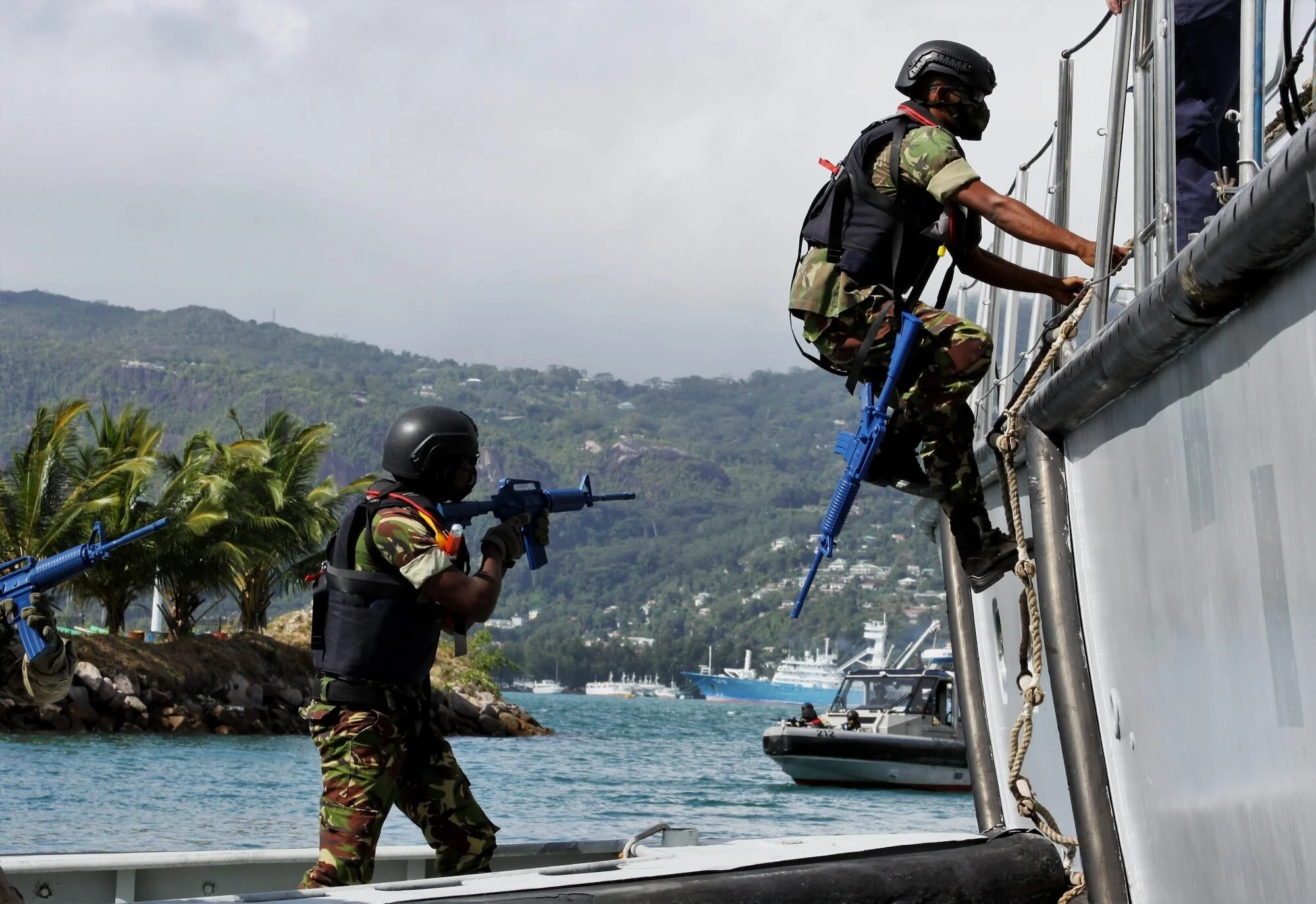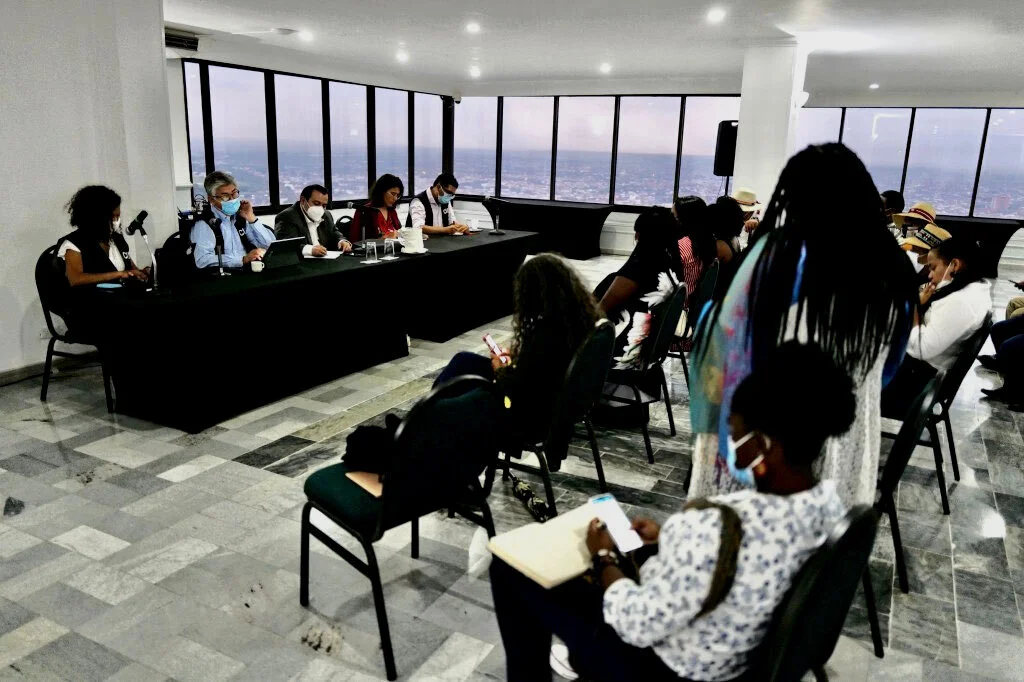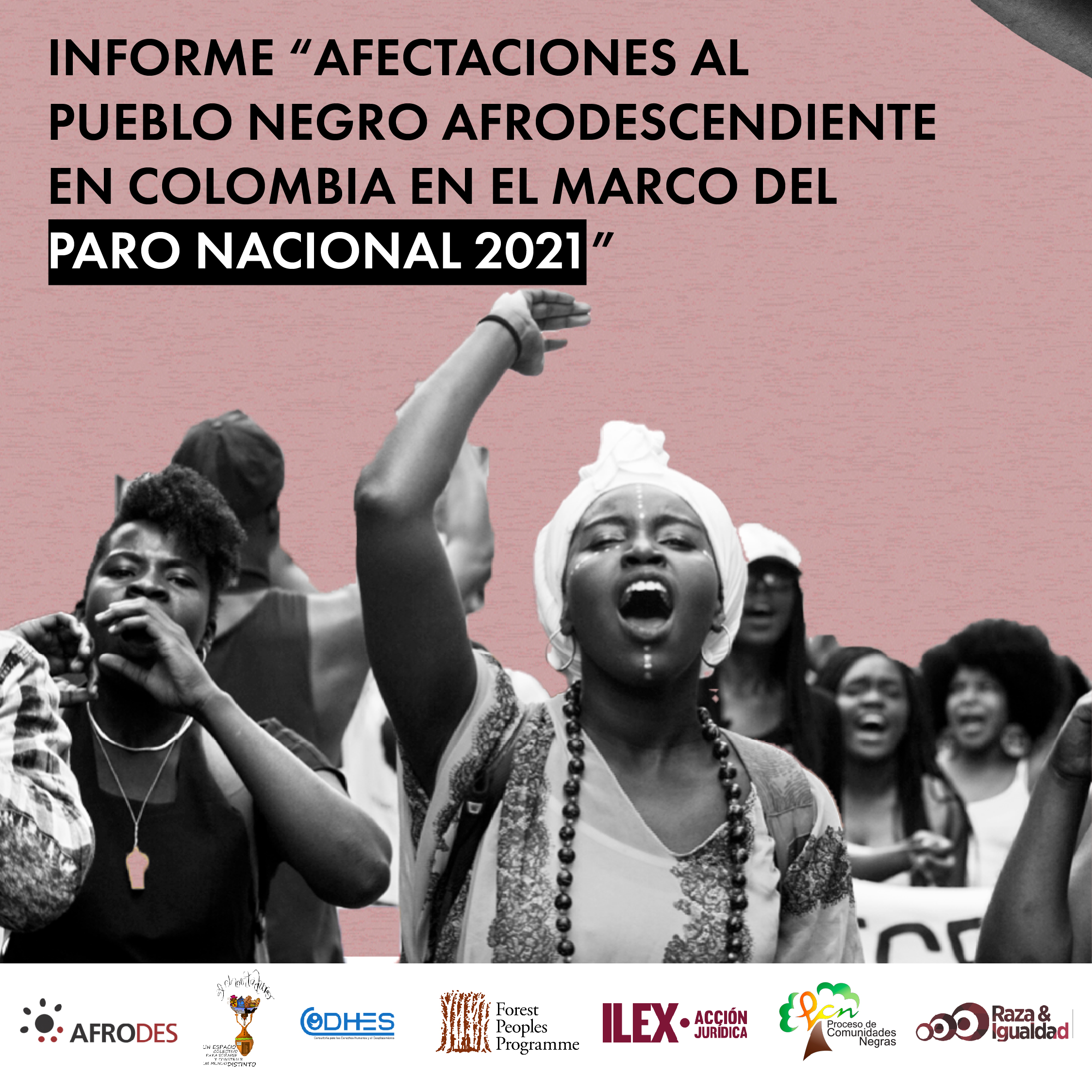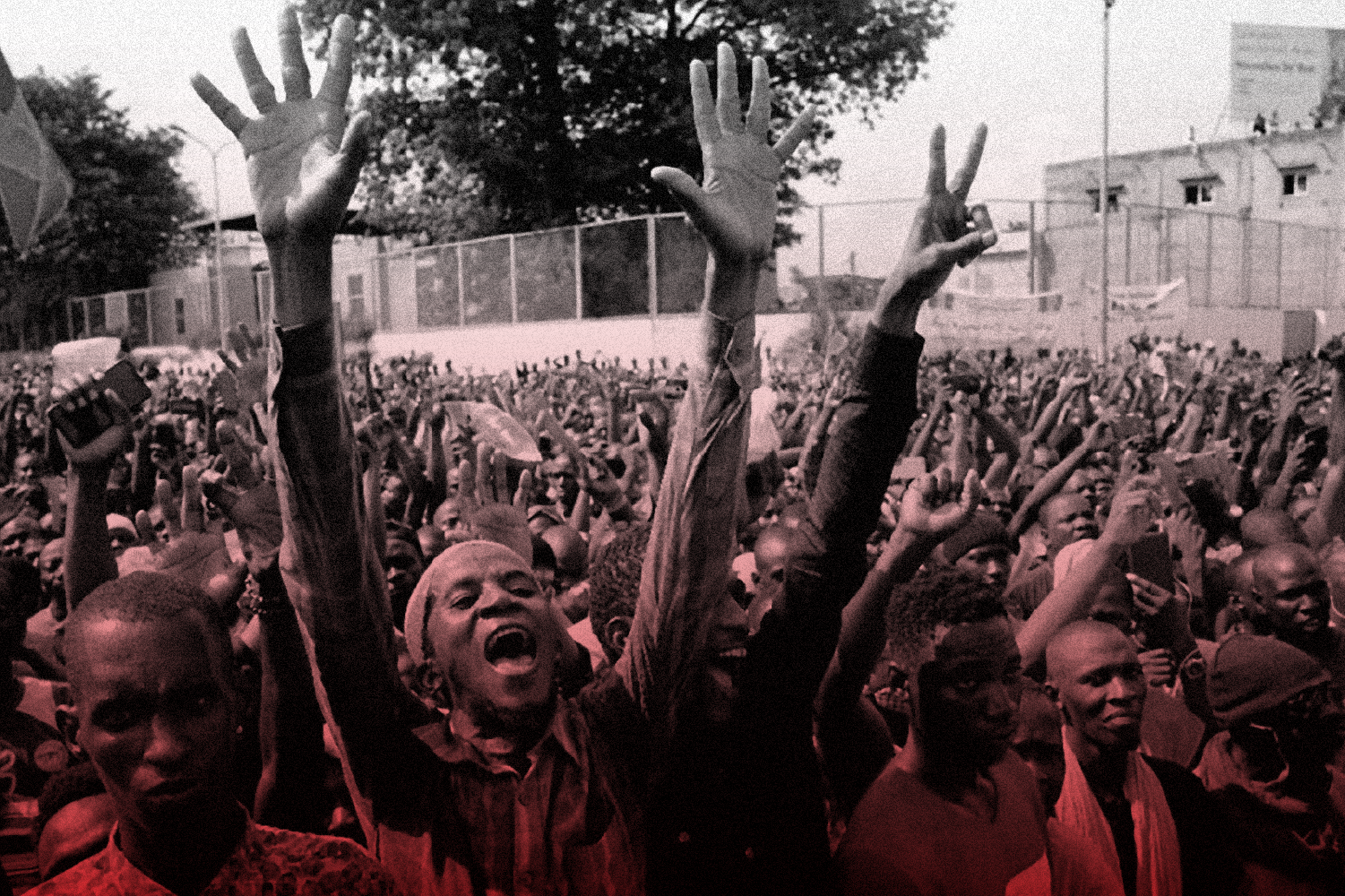Statement of the International Delegation to Nicaragua, July 18-25 2021
We have come to Nicaragua this week to see for ourselves the lived reality of the Nicaraguan people. We are here from the United States, Brazil, Canada, and Mexico. From July 18 to July 25 our delegation, organized by the Nicaragua Network, had the opportunity to visit Managua, Granada, Estelí and Masaya. We have seen the beauty of this country and its people—a people struggling mightily to live in peace and prosperity despite constant U.S. aggression and brutal sanctions.
We heard from health care providers, teachers and vocational instructors in Estelí who are working to make sure that working class people and campesinos have access to medical attention and education—in addition to access to housing, employment and income promotion programs also offered by the Sandinista government. As one teacher explained, the current system under Sandinista leadership is one of “inclusion” as opposed to the policies of “exclusion” of the neoliberal governments of 1991 to 2007.
In contrast to the countries of the global north, Nicaragua has managed to contain one of the most serious pandemics of the last decades with a free universal public health system, with personalized attention and follow-up for infected patients, and with a model that seeks to adjust to the particular characteristics of each region, including the needs of indigenous and Afro-Indigenous communities.
In Masaya, we heard from those who lived during the U.S.-backed terror of the coup attempt of 2018. We heard from city security forces who were kidnapped and tortured by opposition forces who took over the city. The U.S. mass media - aligned with U.S. political, economic and military interests—led the false, unsubstantiated narrative of a repressive government. We heard direct testimonies of victims of the 2018 violence and saw massive destruction of
infrastructure that the city has yet to fully recover from.
One individual lost his arm during the torture he suffered. The burning of the mayor’s offices; the destruction of the city works building along with sanitation and street-paving trucks; and the burning down of the historic Masaya market, was proof to us that the instigators engaged in outright terrorism. At the same time, we saw the heroic efforts of the security workers and government and people of Masaya to rebuild and to continue providing vital services to the
citizenry.
In Granada, we heard similar testimonies, including of the opposition’s torching of the centuries-old municipal building which William Walker did not manage to destroy during his burning down of that city in the 1850s. We also heard how the historic combatants who defeated Somoza came out during the 2018 coup attempt to confront the opposition violence and, along with the police, to restore order and peace.
What’s more, we witnessed the daily lives of the Nicaraguan people who get up early every morning to take a bus or walk long distances to work. These are the vast majority of the Nicaraguan people, and it is they, as we witnessed for ourselves, who came to the Plaza de Fe in huge numbers on July 19 to celebrate the Sandinista victory over the U.S.-backed dictator Somoza. The scenes we saw in the Plaza—of working class families regaling in their red and black of the FSLN—were not covered by the U.S. press, for they resoundingly contradict the U.S. narrative of a people being repressed by a tyrannical government.
The tyrannical government—that of Anastasio Somoza—is now gone despite the backing of the U.S., which tried to reinstall Somoza’s National Guard in the form of the Contras in the 1980’s. That the U.S. now claims to care about Nicaraguan democracy is a cruel joke.
The U.S.’s constant attempts to undermine the peace and prosperity of the Nicaraguan people; to sow divisions which exploded into violence in 2018; and to undermine the sovereignty of Nicaragua are unacceptable. We denounce these attempts as immoral and illegal, just as the International Court of Justice found these efforts to be unlawful in its 1986 decision in the case of Nicaragua versus the U.S.
We call upon the U.S. government and allied NGOs to halt their interference in and sanctions against this country and to let Nicaragua live in peace as a sovereign nation just as the UN Charter unequivocally requires. Recent polling by M&R Consulting demonstrates massive opposition to such foreign interference, 85%, amongst the Nicaraguan people.
We thank the Nicaraguan people for opening up their hearts to us during our trip to this country of lakes and volcanoes, and we stand with you against all U.S. meddling, sanctions and provocations.
In solidarity,
Nicaragua Network - Alliance for Global Justice / Answer Coalition / Black Alliance for Peace /
Jornalistas Livres / Comitê Antiimperialista General Abreu e Lima / TV Cidade Livre (TVComDF) / Jornal Brasil Popular / Observatorio de Derechos Humanos de los Pueblos / Pan-African Community Action (PACA) / Party for Socialism and Liberation (PSL) / “Voices with Vision” program of WPFW Radio
* In an effort to call on the U.S. to stop interfering in the lives and future of Nicaraguans, we invite individuals from all over the world to support the Hands Off Nicaragua sign on letter.
—
Declaración de la Delegación Internacional a Nicaragua, 18-25 de julio 2021
Hemos venido a Nicaragua esta semana para conocer la realidad vivida por el pueblo nicaragüense. Venimos de Estados Unidos, Brasil, Canadá y México. Del 18 al 25 de julio nuestra delegación, organizada por Nicaragua Network, ha tenido la oportunidad de visitar Managua, Granada, Estelí y Masaya. Hemos visto la belleza de este país y de su gente, un pueblo que lucha valientemente por vivir en paz y prosperidad a pesar de las constantes agresiones y brutales sanciones de los Estados Unidos.
Escuchamos a los proveedores de atención médica, profesores e instructores de formación profesional de Estelí, quienes trabajan para garantizar que la clase trabajadora y los campesinos tengan acceso a servicios de atención médica y a la educación, además del acceso a la vivienda, el empleo y los programas de promoción de ingresos también ofrecidos por el gobierno sandinista. Como explicó un profesor con el que conversamos, el sistema actual bajo el liderazgo sandinista es de "inclusión", en contraposición a las políticas de "exclusión" de los gobiernos neoliberales de 1991 a 2007.
A diferencia de los países del norte global, Nicaragua ha logrado contener una de las pandemias más graves de las últimas décadas con un sistema de salud público universal y gratuito, con atención y seguimiento personalizado a los pacientes infectados, y con un modelo que busca ajustarse a las características particulares de cada región, incluyendo las necesidades de las comunidades indígenas y afro-indígenas.
En Masaya, escuchamos a quienes vivieron el terror respaldado por los Estados Unidos durante el intento de golpe de estado de 2018. Escuchamos a agentes de las fuerzas de seguridad de la ciudad que fueron secuestrados y torturados por las fuerzas de la oposición que tomaron la ciudad. Los medios de comunicación estadounidenses -alineados con los intereses políticos, económicos y militares de Estados Unidos- dirigieron la narrativa falsa y sin fundamento de que en Nicaragua existe un gobierno represivo. Escuchamos testimonios directos de víctimas de la violencia de 2018 y vimos la destrucción masiva de infraestructuras de la que la ciudad aún no se ha recuperado del todo.
Un agente perdió su brazo como consecuencia de la tortura que sufrió. La quema de las oficinas de la alcaldía; la destrucción del edificio de obras de la ciudad junto con los camiones de saneamiento y pavimentación de calles; y la quema del histórico mercado de Masaya, fue para nosotros una prueba de que los instigadores se dedicaron al terrorismo descarado. Al mismo tiempo, vimos los heroicos esfuerzos de los trabajadores de seguridad y del gobierno y el pueblo de Masaya para reconstruir y seguir prestando servicios vitales a la ciudadanía.
En Granada escuchamos testimonios similares, incluso del incendio - por parte de la oposición - del centenario edificio municipal que William Walker no logró destruir durante su quema de esa ciudad en la década de 1850. También escuchamos cómo los combatientes históricos que derrotaron a Somoza salieron durante la intentona golpista de 2018 para enfrentar la violencia opositora y, junto con la policía desarmada, restablecer el orden y la paz.
Además, fuimos testigos de la vida cotidiana de los nicaragüenses que cada mañana se levantan temprano para tomar un autobús o caminar largas distancias para ir a trabajar. Son la inmensa mayoría del pueblo nicaragüense y son ellos, como pudimos comprobar, los que acudieron en masa a la Plaza de Fe el 19 de julio para celebrar la victoria sandinista sobre el dictador Somoza, apoyado por Estados Unidos. Las escenas que vimos en la Plaza -de las familias de la clase trabajadora que se vestían de rojo y negro con el FSLN- no fueron cubiertas por la prensa estadounidense ya que contradicen rotundamente la narrativa estadounidense de un pueblo reprimido por un gobierno tiránico.
El gobierno tiránico -el de Anastasio Somoza- ya no existe, a pesar del apoyo de Estados Unidos que intentó reinstalar la Guardia Nacional de Somoza en la forma de los Contras en la década de 1980. Que Estados Unidos diga ahora que se preocupa por la democracia nicaragüense es una broma cruel.
Los constantes intentos de Estados Unidos de socavar la paz y la prosperidad del pueblo nicaragüense; de sembrar divisiones que derivaron en violencia en 2018; y de socavar la soberanía de Nicaragua son inaceptables. Denunciamos estos intentos como inmorales e ilegales, al igual que la Corte Internacional de Justicia determinó que estos esfuerzos eran ilegales en su decisión de 1986 en el caso de Nicaragua contra los Estados Unidos. Hacemos un llamado al gobierno de Estados Unidos y a las ONGs aliadas con sus intereses para que cesen su injerencia y sanciones contra este país. Dejen que Nicaragua viva en paz comon una nación soberana, tal y como exige inequívocamente la Carta de la ONU. Recientes encuestas de M&R Consulting demuestran una oposición masiva: 85% del pueblo nicaragüense se opone a dicha injerencia.
Agradecemos al pueblo nicaragüense que nos haya abierto su corazón durante nuestro viaje a este país de lagos y volcanes, y nos posicionamos con ustedes en contra de todas las injerencias, sanciones y provocaciones de los Estados Unidos.
En solidaridad,
Nicaragua Network - Alliance for Global Justice / Answer Coalition / Black Alliance for Peace / Jornalistas Livres / Comitê Antiimperialista General Abreu e Lima / TV Cidade Livre (TVComDF) / Jornal Brasil Popular / Observatorio de Derechos Humanos de los Pueblos / Pan-African Community Action / PSL Party for socialism and liberation / Voices with vision, WPFW Radio
En un esfuerzo por pedir a Estados Unidos que deje de interferir en las vidas y el futuro de los nicaragüenses, invitamos a personas de todo el mundo a apoyar la campaña de firmas Manos Fuera de Nicaragua.
--
Déclaration de la délégation internationale au Nicaragua, 18-25 juillet 2021
Nous sommes venus au Nicaragua cette semaine pour découvrir la réalité vécue par le peuple nicaraguayen. Nous venons des États-Unis, du Brésil, du Canada, et du Mexique. Du 18 au 25 juillet, notre délégation, organisée par le réseau du Nicaragua, a eu l'occasion de visiter Managua, Granada, Esteli et Masaya. Nous avons vu la beauté de ce pays et de son peuple, un peuple qui lutte vaillamment pour vivre dans la paix et la prospérité malgré l'agression constante et les sanctions brutales des États-Unis.
Nous avons entendu des prestataires de soins de santé, des enseignants et des instructeurs de formation professionnelle à Estelí, qui s'efforcent de faire en sorte que la classe ouvrière et les paysans aient accès aux services de soins de santé et à l'éducation, en plus de l'accès aux programmes de logement, d'emploi et de promotion des revenus également proposés par le gouvernement sandiniste. Comme l'a expliqué un professeur à qui nous avons parlé, le système actuel sous la direction des Sandinistes est un système d'inclusion, par opposition aux politiques d'exclusion des gouvernements néolibéraux de 1991 à 2007.
Contrairement aux pays du Nord, le Nicaragua a réussi à contenir l'une des pandémies les plus graves de ces dernières décennies grâce à un système de santé publique universel et gratuit, à des soins et un suivi personnalisés des patients infectés, et à un modèle qui cherche à s'adapter aux caractéristiques particulières de chaque région, y compris aux besoins des communautés indigènes et afro-indigènes.
À Masaya, nous avons entendu ceux qui ont vécu la terreur soutenue par les États-Unis lors de la tentative de coup d'État de 2018. Nous avons entendu des agents des forces de sécurité de la ville qui ont été enlevés et torturés par les forces d'opposition qui ont pris le contrôle de la ville. Les médias américains - alignés sur les intérêts politiques, économiques et militaires des États-Unis - ont diffusé un récit faux et sans fondement selon lequel un gouvernement répressif existe au Nicaragua. Nous avons entendu des témoignages de première main de victimes des violences de 2018 et vu la destruction massive des infrastructures dont la ville ne s'est pas encore totalement remise.
Un officier a perdu son bras à la suite des tortures qu'il a subies. L'incendie des bureaux du maire, la destruction du bâtiment des travaux publics de la ville, ainsi que des camions d'assainissement et de pavage des rues, et l'incendie du marché historique de Masaya, ont été pour nous la preuve que les instigateurs se livraient à un terrorisme pur et simple. Dans le même temps, nous avons vu les efforts héroïques des agents de sécurité, du gouvernement et de la population de Masaya pour reconstruire et continuer à fournir des services vitaux aux citoyens.
À Grenade, nous avons entendu des témoignages similaires, notamment celui de l'incendie - par l'opposition - du bâtiment municipal centenaire que William Walker n'avait pas réussi à détruire lors de l'incendie de cette ville dans les années 1850. Nous avons également entendu comment les combattants historiques qui ont vaincu Somoza sont sortis lors de la tentative de coup d'État de 2018 pour faire face à la violence de l'opposition et, avec la police non armée, rétablir 'ordre et la paix.
En outre, nous avons été témoins de la vie quotidienne des Nicaraguayens qui se lèvent tôt chaque matin pour prendre un bus ou parcourir de longues distances à pied pour aller travailler. Ils constituent la grande majorité du peuple nicaraguayen et ce sont eux, comme nous l'avons vu, qui ont afflué sur la Plaza de Fe le 19 juillet pour célébrer la victoire des sandinistes sur le dictateur Somoza soutenu par les États-Unis. Les scènes que nous avons vues sur la Plaza - des familles de la classe ouvrière portant le rouge et le noir avec le FSLN - n'ont pas été couvertes par la presse américaine car elles contredisaient totalement le récit américain d'un peuple réprimé par un gouvernement tyrannique.
Le gouvernement tyrannique - celui d'Anastasio Somoza - n'existe plus, malgré le soutien américain qui a tenté de rétablir la garde nationale de Somoza sous la forme des Contras dans les années 1980. Le fait que les États-Unis prétendent maintenant se soucier de la démocratie nicaraguayenne est une blague cruelle. Les tentatives continues des États-Unis de saper la paix et la prospérité du peuple nicaraguayen, de semer les divisions qui ont conduit à la violence en 2018 et de porter atteinte à la souveraineté du Nicaragua sont inacceptables. Nous dénonçons ces tentatives comme immorales et illégales, tout comme la Cour internationale de justice les a jugées illégales dans sa décision de 1986 dans l'affaire Nicaragua contre États-Unis.
Nous demandons au gouvernement américain et aux ONG alliées à ses intérêts de cesser leur ingérence et leurs sanctions contre ce pays. Laissez le Nicaragua vivre en paix en tant que nation souveraine, comme l'exige sans équivoque la Charte des Nations unies. Des sondages récents réalisés par M&R Consulting montrent une opposition massive : 85% du peuple nicaraguayen s'oppose à cette ingérence.
Nous remercions le peuple nicaraguayen de nous avoir ouvert son cœur lors de notre voyage dans ce pays de lacs et de volcans, et nous sommes à vos côtés contre toutes les ingérences, sanctions et provocations des États-Unis.
En solidarité,
Nicaragua Network - Alliance for Global Justice / Answer Coalition / Black Alliance for Peace / Jornalistas Livres / Comitê Antiimperialista General Abreu e Lima / TV Cidade Livre (TVComDF) / Jornal Brasil Popular / Observatorio de Derechos Humanos de los Pueblos / Pan-African Community Action / PSL Party for socialism and liberation / Voices with vision, WPFW Radio
Afin de demander aux États-Unis de cesser de s'ingérer dans la vie et l'avenir des Nicaraguayens, nous invitons les personnes du monde entier à soutenir la campagne de signature Hands Off Nicaragua.
--
Declaração da Delegação Internacional na Nicarágua, 18 a 25 de julho de 2021
Viemos à Nicarágua esta semana para ver por nós mesmos a realidade vivida pelo povo nicaraguense. Estamos aqui vindos dos Estados Unidos, Brasil, Canadá e México. De 18 a 25 de julho nossa delegação, organizada pela Nicaragua Network, teve a oportunidade de visitar Manágua, Granada, Estelí e Masaya. Vimos a beleza deste país e de seu povo - um povo que luta fortemente para viver em paz e prosperidade, apesar das constantes agressões dos EUA e de sanções brutais.
Ouvimos profissionais de saúde, professores e instrutores vocacionais em Estelí que estão trabalhando para garantir que as pessoas da classe trabalhadora e camponeses tenham acesso a atendimento médico e educação - além do acesso a programas de moradia, emprego e promoção de renda também oferecidos pelo governo sandinista. Como explicou um professor, o sistema atual sob a liderança sandinista é de “inclusão” em oposição às políticas de “exclusão” dos governos neoliberais de 1991 a 2007.
Ao contrário dos países do norte global, a Nicarágua conseguiu conter uma das pandemias mais graves das últimas décadas com um sistema público de saúde universal gratuito, com atendimento personalizado e acompanhamento de pacientes infectados, e com um modelo que busca adequar-se às particularidades de cada região, incluindo as necessidades de comunidades indígenas e afro-indígenas.
Em Masaya, ouvimos aqueles que viveram o terror apoiado pelos EUA na tentativa de golpe de 2018. Ouvimos das forças de segurança da cidade que foram sequestradas e torturadas por forças da oposição que tomaram a cidade. Os meios de comunicação de massa dos EUA - alinhados com os interesses políticos, econômicos e militares dos EUA - lideraram a narrativa falsa e infundada de um governo repressivo. Ouvimos depoimentos diretos de vítimas da violência de 2018 e vimos a destruição massiva da infraestrutura da qual a cidade ainda não se recuperou totalmente.
Um indivíduo perdeu o braço durante a tortura que sofreu. O incêndio dos escritórios da prefeitura; a destruição do prédio e depósito de obras da cidade junto com caminhões de saneamento e pavimentação de ruas; e o incêndio do histórico mercado de Masaya é a prova de que os instigadores se envolveram em terrorismo absoluto. Ao mesmo tempo, vimos os esforços heróicos dos trabalhadores de segurança, do governo e do povo de Masaya para reconstruir e continuar a fornecer serviços vitais aos cidadãos.
Em Granada, ouvimos testemunhos semelhantes, incluindo o incêndio da oposição ao edifício municipal centenário que William Walker não conseguiu destruir durante o incêndio daquela cidade na década de 1850. Também ouvimos como os combatentes históricos que derrotaram Somoza saíram durante a tentativa de golpe de 2018 para enfrentar a violência da oposição e, junto com a polícia, restaurar a ordem e a paz.
Além disso, testemunhamos o cotidiano do povo nicaraguense que se levanta cedo todas as manhãs para pegar um ônibus ou caminhar longas distâncias para o trabalho. Esta é a grande maioria do povo nicaraguense, e foram eles, como testemunhamos por nós mesmos, que vieram à Plaza de Fe em grande número em 19 de julho para celebrar a vitória sandinista sobre o ditador Somoza, apoiado pelos EUA. As cenas que vimos na Plaza - de famílias da classe trabalhadora vestidas com o tradicional vermelho e preto do FSLN - não foram cobertas pela imprensa dos EUA, já que elas contradizem retumbantemente a narrativa dos EUA de um povo sendo reprimido por um governo tirânico.
O governo tirânico - o de Anastasio Somoza - se foi, apesar do apoio dos EUA, que tentou reinstalar a Guarda Nacional de Somoza na forma dos Contras na década de 1980. Que os EUA agora afirmem se preocupar com a democracia da Nicarágua é uma piada cruel. As constantes tentativas dos EUA de minar a paz e a prosperidade do povo da Nicarágua; para semear divisões que explodiram na violência de 2018; e minar a soberania da Nicarágua são inaceitáveis. Denunciamos essas tentativas como imorais e ilegais, assim como a Corte Internacional de Justiça considerou esses esforços como totalmente ilegais em sua decisão de 1986 no caso ‘Nicarágua versus EUA’.
Apelamos ao governo dos Estados Unidos e ONGs aliadas a interromper sua interferência e sanções contra este país e a deixar que a Nicarágua viva em paz como uma nação soberana, assim como a Carta das Nações Unidas inequivocamente exige. Uma pesquisa recente da M&R Consulting demonstra uma oposição massiva a tal interferência estrangeira, 85%, entre o povo da Nicarágua.
Agradecemos ao povo da Nicarágua por abrir o coração para nós durante nossa viagem e a este país de lagos e vulcões, e estamos com vocês contra todas as intromissões, sanções e provocações dos EUA.
Em solidariedade,
Nicaragua Network - Alliance for Global Justice / Answer Coalition / Black Alliance for Peace / Jornalistas Livres / Comitê Antiimperialista General Abreu e Lima / TV Cidade Livre (TVComDF) / Jornal Brasil Popular / Observatorio de Derechos Humanos de los Pueblos / Pan-African Community Action / PSL Party for socialism and liberation / Voices with Vision, WPFW Radio
* Em um esforço para pedir aos EUA que parem de interferir na vida e no futuro dos nicaraguenses, convidamos pessoas de todo o mundo a apoiar a carta de adesão do Hands Off Nicarágua.
Banner photo: The international delegation to Nicaragua at a press conference on July 23, 2021. (courtesy: TN8)































